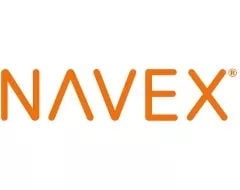When it comes to efficient whistleblower protection, how can regulatory and corporate actions move the world a step closer to effective protection from retaliation? This was the topic of a feature article on Financierworldwide.com today, for which WhistleB's Karin Henriksson was interviewed, alongside a range of other whistleblowing and business ethics experts.
Whistleblowing laws need to be stricter
The article begins by highlighting a number of legislative developments on whistleblowing that are underway, including those we are seeing here in Europe, as well as others in Australia, New Zealand, the US and Canada.
At WhistleB, we see the proposed European Commission standards to guarantee a high level of protection for whistleblowers that report breaches of EU law, as a big step forward. Adequate whistleblower protection is lacking in many European states today. Unless potential whistleblowers know that they are protected from dismissal, demotion and other forms of retaliation by an employer, they will not come forward. What's more, our experience has shown that in countries where whistleblower protection is stronger, there is also an urge within organisations to set up a whistleblowing system as a means of internal reporting.
Whistleblowers need to be encouraged within companies
The article is also very clear that there is a lot that organisations can and must be doing too. As we always say, it starts with the culture within the organisation. Leaders must convince employees that it is safe to speak up. They can do this through policies, training, banning retaliation and taking action when suspicions of inappropriate conduct are reported by a whistleblower.
Whistleblower system security needs to be front-and centre
The most important of factors, and the reason we started WhistleB, is the need for whistleblower anonymity – and this requires system security. As I say in the article, companies must be aware that in whistleblowing cases, trustworthiness is everything. In order to design an effective whistleblower protection system and to encourage whistleblowing, companies must prioritise data security and handle sensitive information in a safe way. They must guarantee the anonymity of the whistleblower, both procedurally and technically, if the person wants to report anonymously.
Whistleblowing systems must be simple and trustworthy
The process of whistleblowing must be made easy – employees should be able to report in their own languages, for example, and wherever and whenever they want. There must be transparent case handling and investigation processes and a policy for non-retaliation. In order to implement their protection frameworks, companies must make sure that they describe how the whistleblower can remain anonymous while reporting.
In short, what does efficient whistleblower protection require? Laws, culture, secure systems, anonymity and trust.
The content of this article is intended to provide a general guide to the subject matter. Specialist advice should be sought about your specific circumstances.

